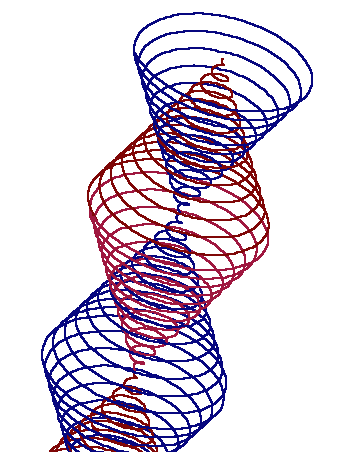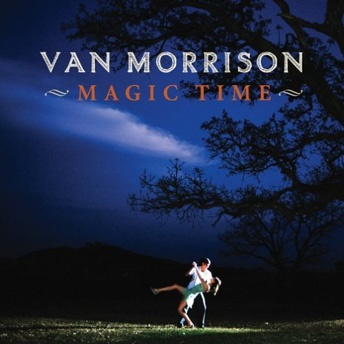"Let your soul and spirit fly into the mystic"*
(spoiler: Yes, I realize that the above video is, in fact, Jakob Dylan and very much *not* the aforementioned Van Morrison. But Van is kind of ornery when it comes to letting his material be shared across los intrawebz -- hence the gratuitous Orlando Bloom video and accompanying Wallflowers soundtrack).
Now then...
Van Morrison has a total man crush on William Butler Yeats. He'll deny it, mind you -- but his music tells another tale entirely. Here's Morrison's own half-hearted attempt to distance himself from Ben Bulben's poet laureate, excerpeted from an old Rolling Stone article:

"[Critics would listen to my songs and say] this is sort of Yeatsian,’ and I’d go ‘Really? I didn’t know. I’d never read him.’ So I’d go out and get Yeats and see, but I hadn’t read him before the article.
(Ring ring... Um, Mr. Morrison? I have your bluff on line one.)
Gee, that's strange. For a guy who knows nothing about Yeats' writings, Van The Man "conveniently" found himself cribbing a boatload of the guy's material. Heck, just look at these Van Morrison record titles:
- Astral Weeks (1968)
- Moondance (1970)
- Beautiful Vision (1982)
- Cuchulain (2001)
- Magic Time (2005)
- A Vision -- which deals extensively with which Yeats calls "astral" -- or star-like -- matters (1925)
- "The Phases of the Moon" (1919)
- Cuchulain's Fight with the Sea (1925)
- "Magic: An Essay" (1903)
"Rave on, let a man come out of IrelandOooh SNAP!
Rave on, on Mr. Yeats,
Rave on down through the Holy Rosey Cross
Rave on down through theosophy, and the Golden Dawn
Rave on through the writing of 'A Vision'
Rave on, Rave on, Rave on, Rave on, Rave on, Rave on"

Yeah, you know what you did.
Ok, it's settled: Van Morrison pretty much made a career as a wholesale ripoff of his countryman and poetic forbear. But Morrison's BIGGEST Yeats ripoff of all time? None other than the songwriter’s classic 1970 hit “Into The Mystic.
As Morrison begins his 1970 track, he sets the stage for a song that takes place in a liminal threshold between two realms, singing:
“We were born before the wind / Also younger than the sun”Just a simple throwaway line, right? Not on your life. We already know that Van Morrison is certainly not above cribbing from Yeats' source material. So let's see how these lines fit into the Yeats canon:

No, no, no -- not *that* Cannon.
"Into the Mystic" tells the story of two lovers who were born “before the wind" but "also younger than the sun." Conveniently (read: plagiarist-ically?) these two symbols also just so happen to rather neatly coincide with two actual events in the life of one W.B. Yeats.
First up: "born before the wind" -- in 1899, Yeats put himself on the map of literary giants with the publication of a collection of poems titled The Wind Among The Reeds. What were the poems about, you ask? Why what else besides all sorts of crazy and other-worldly themes like mist, mysticism, and matters of the occult.
(Hey wait a second here...)
Next up: "younger than the sun" -- true story: Yeats was obsessed with an impressive array of fringe religious sects in his lifetime (heh heh, "sects") -- the most noteworthy of which just so happened to be a quasi-cult known as The Order of The Golden Dawn. The group's philosophy? A full-tilt focus on worshipping (wait for it) the SUN, and a pretty clear-cut obsession with the unending circle of birth and death.
("Born before the..." ooooh, gotcha.)
How fitting that a song about going "Into the Mystic" is set smack-dab "before the wind" and "the sun," eh?
In the lines that follow, Morrison takes his Yeats influence a step further by lifting entire lines directly from Yeats' poetry (the NERVE of that guy!). Case in point: check out Yeats’ “Crazy Jane and the Bishop,” where the poet's heroine talks about how she dreams of a day when she can “wander out into the night.” And then Yeats' very next poem in the sequence (“Crazy Jane Reproved”), where as a blustery Bishop shoots Jane down, saying “I care not what the sailors say."
But in "Into the Mystic," Van turns the tables --
"Hark, now hear the sailors’ cry!Hey! That almost sounds like Van put Yeats' thing down, flipped it, and reversed it.
Smell the sea and feel the sky
Let your soul and spirit fly
Into the mystic"

Missy Elliot: ".ti esrever dna pilf ,nwod gniht ym tup I"
Actually, the whole "flip it and reverse it" trick is a move stolen from right of Yeats' playbook, too -- since the man spent pages and pages of his life's work all but consumed by the image of the twisting gyres. Since Yeats' was something of a nutjob, however, his philosophy on the matter can get a bit convoluted -- so perhaps we'll wrap this entry up with a handy visual aid before segueing into our closing remarks:

Exhibit A: The gyre. See the twisting? Literally "it puts a thing down, then flips it and reverses it."
In Yeats' estimation, gyres were the ultimate symbol of an interpenetrating universe. He loved the notion of sunsets, twilights, sunrises, moonrises, and foggy periods of uncertainty where one realm gradually gave way to the next. To that end, a huge chunk of his poetry and philosophical writings were dedicated precisely to these "mystic" portals between two realms where fantasy and reality collided and anything was possible.
As Yeats saw things: with all of this liminal fluxuation twisting and unfolding around us, nobody can ever really quite tell you for sure if they are actually sleeping or awake in a given moment. Really, all we're doing is floating "into the mystic."
For Yeats, this was the stuff that dreams (and poems) were made of.
You might even call it "Magic Time."

Figures.
*Are you viewing this article anywhere besides Blogger? Cool! Click here to check out the music video that's embedded in the original post.

Funny, nay, informative!
ReplyDelete